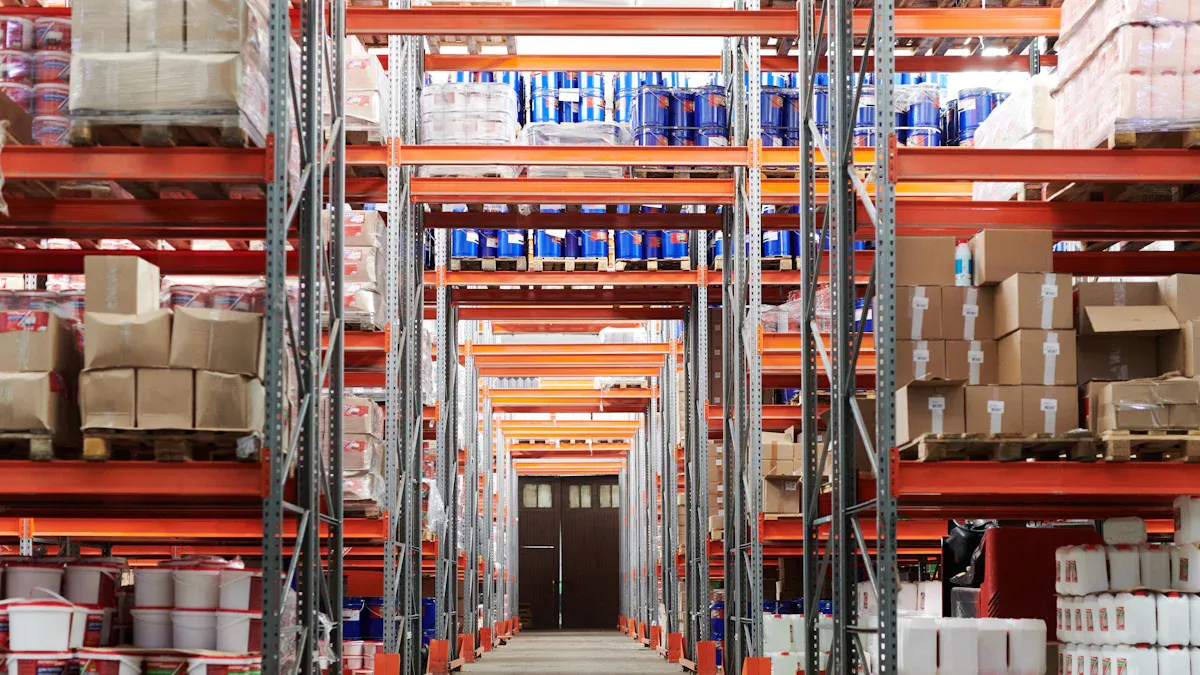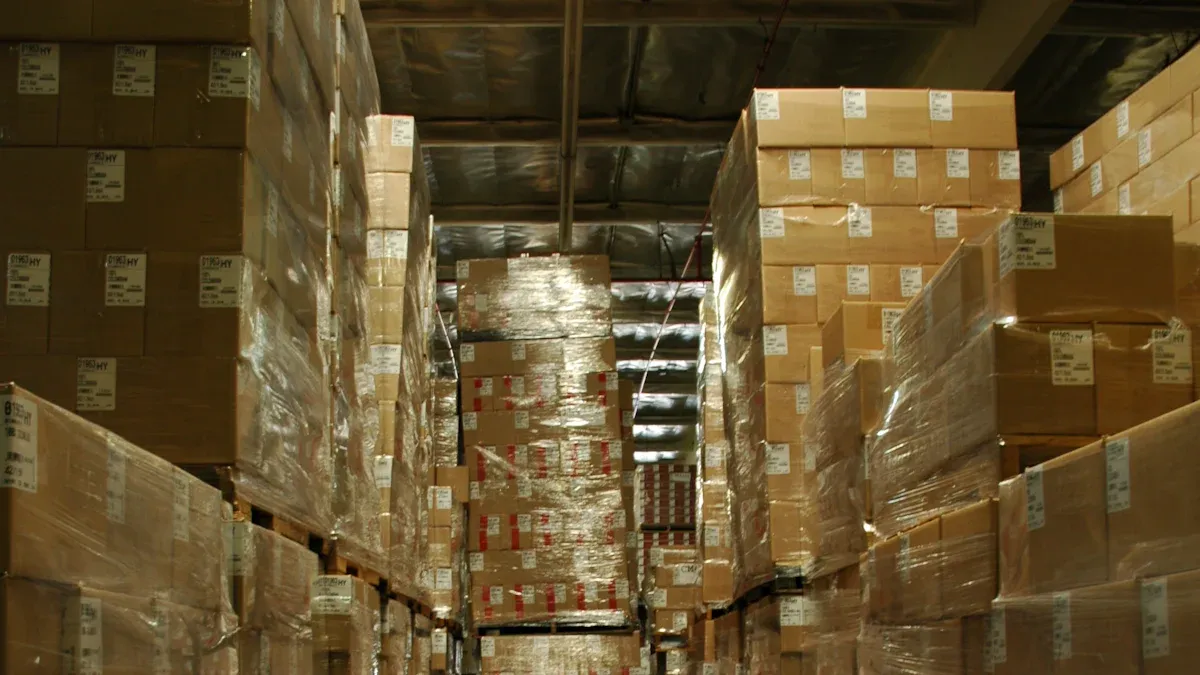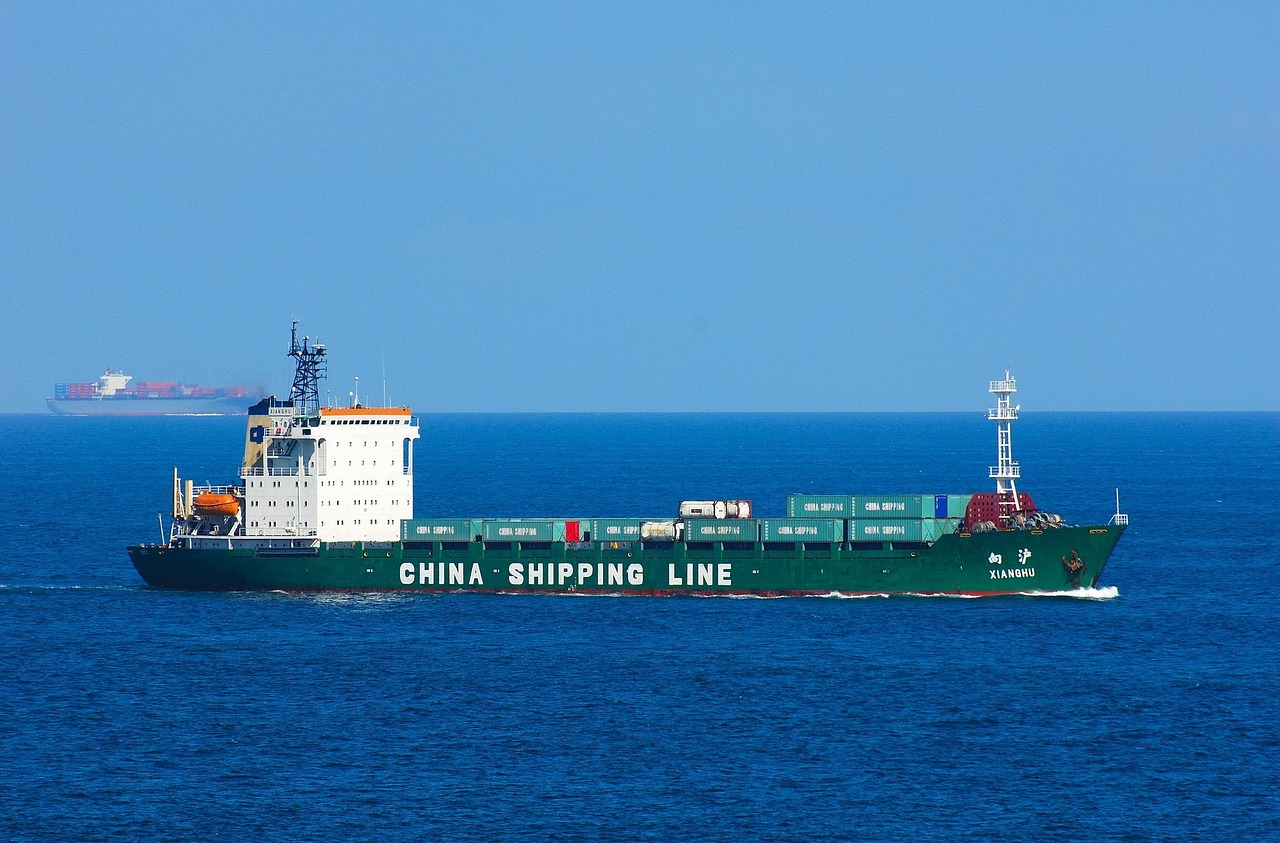How to Use Bonded Warehouses to Reduce US Tariffs in 2025

As the U.S. trade climate tightens under Trump’s 2025 tariff expansion, you face new challenges in managing costs. With blanket tariffs of 10% on all imports and up to 125% or even higher on Chinese goods, minimizing expenses becomes critical.
One rising solution? The bonded warehouse.
Understanding Bonded Warehouses
What Is a Bonded Warehouse?
A bonded warehouse is a secure, customs-controlled facility where imported goods can be stored without paying duties upfront. Under U.S. regulations, goods may remain for up to five years, giving businesses flexibility to re-export or defer tariffs until domestic sale, improving both inventory control and cash flow.
There are 11 classes of bonded warehouses, each tailored to specific needs. These include private storage facilities, duty-free stores, and warehouses designed for manufacturing or manipulation of goods. By utilizing bonded warehouse services, you gain access to a system that allows you to defer duties while optimizing your supply chain operations.
Tip: If your business imports goods that require long-term storage or manipulation before distribution, bonded warehouses offer a cost-effective solution to avoid tariffs and streamline operations.
How Bonded Warehouses Help Avoid Tariffs

Image Source: pexels
Bonded warehouses play a pivotal role in helping businesses avoid tariffs. When you store goods in a bonded warehouse, you delay duty payments until the goods are released for domestic consumption. If you choose to re-export the goods, you can bypass tariffs entirely. This mechanism is especially beneficial in 2025, given the heightened tariff rates on imports, particularly from China.
For example, if your company imports raw materials but plans to export finished products to international markets, a bonded warehouse allows you to store and process these materials without incurring immediate tariff costs. This strategy not only reduces financial strain but also enhances your ability to compete in global markets.
Note: YQN Logistics operates bonded warehouse facilities in China. For more information, please contact us at info@yqn.com.
Key Differences Between Bonded Warehouses and Foreign Trade Zones
While bonded warehouses and foreign trade zones share similarities, they differ in setup complexity, regulatory requirements, and ideal use cases. Understanding these distinctions helps you choose the right option for your business.
Feature | Bonded Warehouses | Foreign Trade Zones |
|---|---|---|
Setup Complexity | Generally faster and less complex to establish | Involves additional regulatory approvals and is more complex |
Regulatory Requirements | Requires compliance with CBP regulations and inspections | Requires coordination with local authorities and zoning approvals |
Duty Payments | Delayed duty payments on goods awaiting re-export | No duties until goods leave the zone; exempt if re-exported |
Ideal Use Case | Suitable for goods that do not require assembly | Best for manufacturers needing assembly and larger spaces |
Market Demand | High demand in regions with significant international trade | Beneficial in manufacturing-heavy inland regions |
Bonded warehouses are ideal for businesses that need secure storage and manipulation of goods without immediate tariff payments. Foreign trade zones, on the other hand, cater to manufacturers requiring assembly and larger operational spaces. If your business focuses on re-exporting goods or managing inventory in high-demand trade regions, bonded warehouses offer a simpler and more efficient solution.
Tip: YQN Logistics operates bonded warehouse facilities in China. For more information, please contact us at info@yqn.com.
Benefits of Using Bonded Warehouses

Deferring Duty Payments for Cash Flow Flexibility
Using a bonded warehouse allows you to defer duty payments, which can significantly improve your cash flow. Instead of paying tariffs immediately upon import, you can store goods in a bonded facility and delay payment until the goods are released for domestic consumption. This flexibility enables you to allocate your financial resources more effectively, especially during periods of fluctuating market demand.
Market reports highlight that businesses utilizing bonded warehouses often experience substantial tax cost savings. For instance, companies report saving 25-30% on taxes by deferring payments. Additionally, bonded warehouses allow you to store goods for up to five years, giving you ample time to manage inventory and plan your sales strategy.
Benefit | Description |
|---|---|
Duty Deferral | Postpones VAT and other duty taxes until goods are shipped, improving cash flow. |
Tax Cost Savings | Companies report savings of 25-30% by utilizing bonded warehouses for tax deferral. |
Extended Storage | Goods can be stored for up to five years, allowing businesses to manage inventory and cash flow. |
Tip: YQN Logistics operates bonded warehouse facilities in China. For more information, please contact us at info@yqn.com.
Avoiding Tariffs Through Re-Exporting Goods
Bonded warehouses provide a strategic advantage when you aim to avoid tariffs. If you plan to re-export goods, you can store them in a bonded facility without incurring any duties. This approach is particularly useful in 2025, as tariff rates remain high, especially on imports from specific countries like China.
Research shows that many companies reroute goods through third-party countries to avoid tariffs. By doing so, they can label the goods as originating from non-targeted locations, effectively reducing their tax burden. For example, if your business imports raw materials but exports finished products, a bonded warehouse allows you to process and store these materials without paying tariffs upfront. This strategy not only minimizes costs but also enhances your competitiveness in international markets.
Note: YQN Logistics operates bonded warehouse facilities in China. For more information, please contact us at info@yqn.com.
Leveraging Value-Added Services and Inventory Management
Bonded warehouse services go beyond simple storage. Many facilities offer value-added services such as packaging, labeling, and quality inspections. These services allow you to prepare goods for distribution while they remain in the bonded facility, saving time and reducing operational costs.
Effective inventory management is another key benefit. Bonded warehouses provide secure, long-term storage, enabling you to manage stock levels efficiently. This is especially advantageous for businesses dealing with seasonal demand or fluctuating market conditions. By leveraging these services, you can streamline your supply chain and reduce the risk of overstocking or stockouts.
Tip: YQN Logistics operates bonded warehouse facilities in China. For more information, please contact us at info@yqn.com.
Steps to Use a Bonded Warehouse Effectively
Choosing the Right Bonded Warehouse for Your Business
Selecting the right bonded warehouse is crucial for maximizing benefits and minimizing the financial burden of tariffs. Start by evaluating your business needs, such as storage capacity, proximity to ports, and value-added services like packaging or labeling. Consider the type of goods you import or export and whether the warehouse can accommodate specific requirements, such as temperature control or hazardous material handling.
Best practices for managing inventory and documentation can guide your decision. Implement robust inventory control systems and establish a document management process to track goods efficiently. For example, Company X, a global electronics manufacturer, successfully reduced inventory costs and improved distribution by choosing a bonded warehouse that aligned with its operational needs.
Tip: YQN Logistics operates bonded warehouse facilities in China. For more information, please contact us at info@yqn.com.
Ensuring Compliance with U.S. Customs Regulations
Compliance with U.S. Customs regulations is non-negotiable when using bonded warehouses. U.S. Customs and Border Protection (CBP) oversees these facilities and ensures adherence to legal frameworks. As an importer or exporter, you must maintain accurate records, conduct regular audits, and follow all CBP guidelines to avoid penalties.
Warehouse proprietors are responsible for ensuring their facilities meet regulatory standards. However, you also play a role in compliance by providing accurate documentation and adhering to customs procedures. Regularly review internal control procedures and train your staff on proper protocols to stay ahead of potential issues.
Note: YQN Logistics operates bonded warehouse facilities in China. For more information, please contact us at info@yqn.com.
Collaborating with Logistics Experts and Customs Brokers
Partnering with logistics experts and customs brokers can help you navigate the new tariff landscape effectively. For instance, logistics experts can help mitigate risks from fluctuating tariffs by streamlining inventory management and minimizing lead times.
Tip: Collaborating with an experienced logistics provider like YQN can help you minimize tariff exposure. For more information, contact info@yqn.com for a free consultation.
FAQ
What types of goods can you store in a bonded warehouse?
You can store almost any imported goods, including raw materials, finished products, and perishables. However, ensure the warehouse meets specific requirements like temperature control or hazardous material handling.
How do bonded warehouses reduce tariff exposure?
Bonded warehouses delay duty payments until goods enter domestic markets. If you re-export goods, you avoid tariffs entirely, minimizing your tariff exposure and improving cost efficiency.
Are bonded warehouses suitable for global trade businesses?
Yes, bonded warehouses are ideal for global trade. They provide storage flexibility, defer duties, and support re-exporting, making them a strategic tool for international operations.
See Also
Shipping Containers From Singapore to the US in 2025
Essential Guidance for Understanding Incoterms in 2025
Three Important Changes Cross-Border Sellers Should Know About US Warehouses
Freight Trends in the China Market for March 2025
Impact of U.S. Tariff Suspension on Asian Exporters and Supply Chains

Shipping with YQN - Global Logistics at Your Fingertips
YQN has established subsidiaries worldwide, covering North America, Latin America, Southeast Asia, and the Middle East. We have partnered with 300+ top shipping and airline companies and have access to 3500+ high-quality supplier resources. YQN also has a professional customer service and fulfillment team of over 500 people to provide more worry-free and efficient international logistics services.
Contact Us
You can also email us at info@yqn.com.

